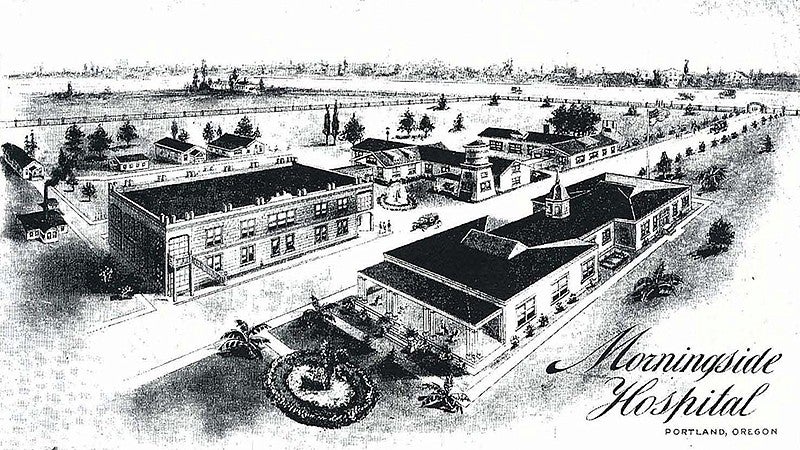
Memories of Morningside, Animal House, and Michi Yasui
Morningstar psychiatric hospital, mental illness, a movie with a complicated history, and a dear friend
April 3, 2019
3 min read
Returning to Morningside
I worked at Morningside psychiatric hospital in the early ’60s as a psychiatric aide. I saw things that horrified me and I saw things that showed great caring. For an 18-year-old from the Oregon coast, working there was an eye-opening experience that I will never forget. I’d love to talk with the people who are doing the research and share some of my memories.
In the same issue, the article about poet laureate Kim Stafford (“Eloquent Listener”) reminded me that many years ago he collected some of my songs (I’m a folksinger) while I was working in Lincoln County.
Thanks for the magazine.
Mike O’Donnell, BS ’74 (general social science)
Raymond, New Hampshire
I was diagnosed with a mental illness in 2012 called schizoaffective disorder. Before I was diagnosed, I had struggled with anxiety and depression for part of my adult life. I was first hospitalized while I was living in a Buddhist monastery in Sri Lanka. After a short period there, I returned home to California to live with my parents. I was again hospitalized after a short period.
I learned about the Putnam Clubhouse, which specializes in social and vocational rehabilitation for adults with mental illness, when Clubhouse staff and members brought in flowers for the patients and talked about the program. Soon after, I began attending.
The Clubhouse immediately provided a tremendous support for me. I worked in the hospitality unit and I assisted other members with their career and educational goals, among other things.
Participating in the Putnam Clubhouse program has brought about a great sense of personal well-being. I no longer struggle with anxiety. The Clubhouse is part of an international network of more than 300 locations. It has provided a supportive community and I have many friends.
John Coombs, BA ’97 (history)
Concord, California
Animal House Arrest
I found the comments of Thomas Wall and Michael Manela regarding the film Animal House (Autumn 2018) to be striking. Manela argues that “although incorrect for a number of reasons today, [the film] should be judged by the standards of the time.” Wall concedes that if shot today, Animal House “would be deemed racist and sexist.”
I was an entering student at the UO in 1978, beginning college just months after Animal House was released. Then, it was a cult film on campus. Contrary to both Wall and Manela, the film is not merely offensive now. For the derogatory attitudes it expresses toward women and its mockery of African Americans, it was just as offensive (the word “cringeworthy” comes to mind) back in 1978.
Manela defends the attitudes exhibited in the film by claiming that “humor is basically cruel.” Maybe in his world it is. The real question is this: why are the male writers of these letters so resistant to imagining the world, including this film, from any perspective other than their own? Why is it so difficult for them to conceive of a world (and a kind of humor) which is not determined from the perspective of white men, and which is not always at the expense of others? Most important, in 2018, why would anyone still regard the resistance of these writers to the perspectives and experiences of people who are different than they are as legitimate?
Anne Morrison, BS ’84 (history), JD ’88
La Grande, Oregon
Memories of Michi
I was delighted to see the article on Michi Yasui in the Autumn 2018 Oregon Quarterly. I knew her and her family intimately because we were from the same hometown, Hood River. I am also an alumna of the UO and attended the special commencement in which Michi was honored. Her brother also fled Eugene to Colorado for fear of being interned. He was honored when all the former students of the UO were given honorary diplomas.
Mitzi Asai Loftus, BA ’54 (education), MA ’62 (interdisciplinary studies)
Ashland, Oregon
CORRECTION: The birthplace of novelist Franz Kafka was misidentified in a story in the Autumn issue. He was born in Prague, Czech Republic.
We want to hear from you. Submit your letters at OregonQuarterly.com, by email to quarterly@uoregon.edu, or by mail to Editor, Oregon Quarterly, 5228 University of Oregon, Eugene, OR 97403-5228. Published letters may be edited for brevity, clarity, & style.

